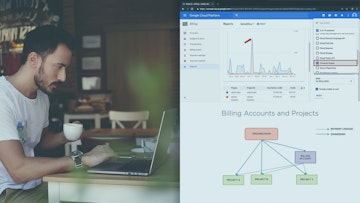
The costs associated with working on the cloud are very different from those associated with traditional on-premise installations. Cloud-based installations have important attractions from a financial perspective - most importantly the pay-as-you-go billing model and the promise of increased capacity exactly when it is needed. However, it would be an expensive mistake to believe that cloud installations are always or inherently cheaper than on-premise installations. In this course, Analyzing and Visualizing Resource Usage Using the Google Cloud Billing APIs, you will see how you can use Google’s dashboards, analytics tools, and...
Read more
Good to know
Save this course
Activities
Career center
Cost Engineer
Cloud Consultant
Cloud Architect
Cloud Operations Engineer
DevOps Engineer
Software Engineer
Cloud Security Engineer
Data Analyst
Data Scientist
Business Intelligence Analyst
IT Manager
Technical Account Manager
Financial Analyst
Project Manager
Billing Analyst
Reading list
Share
Similar courses
OpenCourser helps millions of learners each year. People visit us to learn workspace skills, ace their exams, and nurture their curiosity.
Our extensive catalog contains over 50,000 courses and twice as many books. Browse by search, by topic, or even by career interests. We'll match you to the right resources quickly.
Find this site helpful? Tell a friend about us.
We're supported by our community of learners. When you purchase or subscribe to courses and programs or purchase books, we may earn a commission from our partners.
Your purchases help us maintain our catalog and keep our servers humming without ads.
Thank you for supporting OpenCourser.


